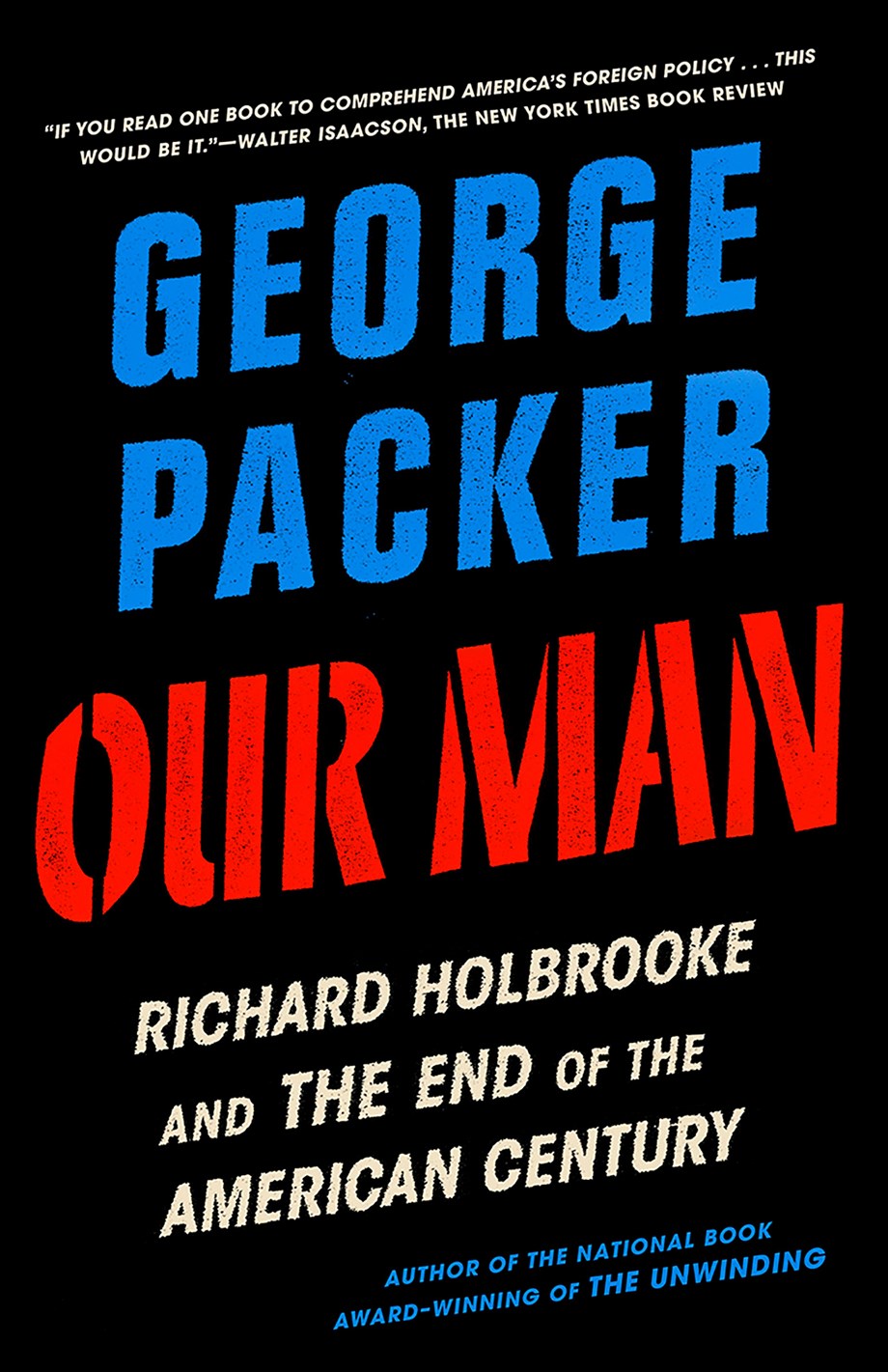“Holbrooke? Yes, I knew him. I can’t get his voice out of my head.”
So begins George Packer in Our Man: Richard Holbrooke and the End of the American Century, an exceptional biography about the complicated man whose life mirrored the waning of America’s international influence in the late 20th century. While scrupulously documented, Our Man pushes the traditional boundaries of the form, creating a bond with readers by breaking down the fourth wall. “Do you mind if we hurry through the early years?” Packer asks. “There are no mysteries here that can be unlocked by nursery school.”
Packer’s Our Man deserves its place beside one of the very best biographies of the 20th century, the 1980 winner of the National Book Critics Circle Award: Ronald Steel’s Walter Lippmann and the American Century. While Lippmann was a journalist and Holbrooke a diplomat, both were outsized men at the center of political life who reflected waxing and waning of the American empire.
From Holbrooke’s big, swollen feet, which he carelessly placed on nearby furniture, to his failures as a parent and spouse, to a diplomatic career marked by modest accomplishments, Packer perceptively enlarges his story. He traces it from Holbrooke’s suburban childhood through the three big chapters of his life: Vietnam, the Balkans, and Afghanistan. Packer identifies the “blind spot behind his eyes that masked his inner life” and the distinctive mix of Holbrooke’s idealistic, self-centered, insatiable pursuit of influence that very much mirrored America’s own anxious place in the world.
At the poignant end of Our Man, Packer captures Holbrooke in full. “I can’t relax,” the diplomat responds to the entreaties of a physician rushing him into the high-risk surgery that he won’t survive. “I am in charge of Afghanistan and Pakistan.”
Holbrooke’s “boisterous struggling,” Packer writes, “lays open more human truths than the composed annals of the great,” and this almost-great figure, with contradictory instincts of egotism and idealism, comes alive in Packer’s extraordinary book.
Ronan Farrow, who served under Holbrooke at the State Department, called him “the closest thing to a father I had” and described him as “the rare asshole who was worth it.” And in his extraordinary Our Man, Packer makes Holbrooke our asshole, too.
– Elizabeth Taylor


 Our Man: Richard Holbrooke and the End of the American Century by George Packer (Knopf)
Our Man: Richard Holbrooke and the End of the American Century by George Packer (Knopf) 